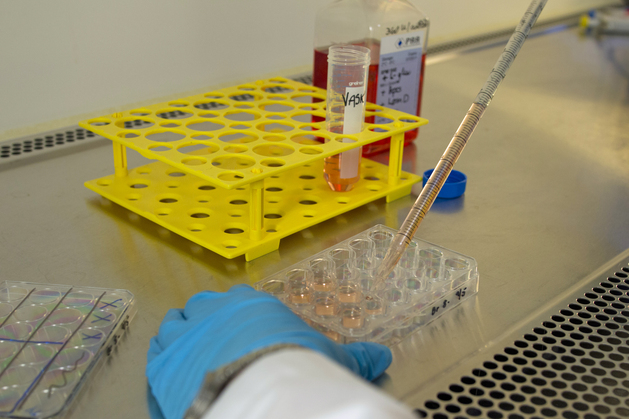FRANTIC
Improving resistance of farmed Atlantic cod to francisellosis

The main goal of the project is to improve francisellosis resistance in Atlantic cod through a comprehensive assessment of the underlying genetic, physiological, and immunological mechanisms determining resistance to francisellosis.
Start
01. Jul 2023
End
31. Mar 2028
Funded by
The Research Council of Norway
Cooperation
University of Oslo, Norway, Memorial University of Newfoundland, Canada, and NORCE, Norway.
Project Manager(s):
Other Participants:
Lill Heidi Johansen
Carlo C. Lazado
Elisabeth Ytteborg
Muhammad Luqman Aslam
Øyvind Johannes Hansen
Background
Francisellosis, a disease caused by Francisella noatunensis ssp. noatunensis, threatens fish health and welfare, causes substantial economic losses to the cod farmers, and hampers sustainable growth of current and future aquaculture.
Currently, there are no preventive measures or treatments against francisellosis; an interdisciplinary approach combining state-of-the-art methods in genetics, immunology, fish biology, microbiology, and vaccinology to find solutions to counteract the adverse effects of francisellosisis is imperative.
Goal
The main goal of FRANTIC is to improve francisellosis resistance in Atlantic cod to maintain fish health and welfare, and to secure sustainable growth of current and future cod aquaculture. The main objective will be reached through a comprehensive assessment of the underlying genetic, physiological, and immunological mechanisms determining resistance to francisellosis.
Sub goals
• Understand the thermal dependence on pathogenesis and host-pathogen interactions.
• Identify, explore, and determine novel phenotypes describing resistance applicable for selective breeding.
• Quantify genetic variation in resistance, identify genomic and functional genetic variation responsible for differences in resistance to francisellosis.
• Evaluate promising vaccination methods and vaccine candidates – assess the efficacy of two currently available LAV candidates with knocked-out virulence genes in Atlantic cod and develop double or triple mutants to further improve vaccine safety and efficacy.
• To determine, through active involvement of the prioritized interest group(s), the ethical and social implication of developing francisellosis resistant Atlantic cod.
What we do
In the first stage, fish will be exposed F. noatunensis at 12°C and 15°C according to the recently established cohabitant challenge model to reveal early and novel stages in the pathogenesis, understand temperature effects on the disease development and host resilience, and to identify phenotypic markers/characteristics that can be used in breeding.
We will study the histopathological development of granulomas using histology.
We will assess the applicability of hyperspectral imaging as a high-throughput methodology to detect disease severity in live animals.
Single-cell transcriptomics will be used to determine the cellular composition and activation status of granulomas.
Transcriptomics and proteomics will be used to detect a broader set of responses in relevant organs (spleen, liver, skin, mucus) and to quantify differences between the temperatures.
Virulence markers under changing conditions and in vitro trials using cell and organ cultures may further reveal detailed host/pathogen characteristics important for development of vaccines and treatments and help to understand disease outbreaks in Atlantic cod.
Based on the experiences from the first stage challenge test, we will examine and determine how the disease and its severity can be registered from numerous individuals, and how these registrations can be utilized in selective breeding.
We will assess how large proportion of the differences in resistance between families and individuals is genetic, and if possible, which genetic variants or genes affect resistance.
We will do this by exposing groups of family members of cod to this disease and registering how the disease affects different fish and families (phenotyping), collecting tissue samples for SNP-genotyping and gene expression profiles.
The phenotypic data on resistance accumulated will be coupled with SNP-genotype data to identify genomic markers associated with francisellosis resistance and susceptibility.
We aim to apply state-of-the-art statistical models and methods (e.g., linear mixed models, Bayesian methods) to detect quantitative trait loci (QTL), and the potential QTLs, or genomic areas with largest SNP-effects will be fine mapped.
Additionally, combining SNP-genotypes and gene-expression profiles will enable us to identify genes differentially expressed and potentially playing role in host resistance to francisellosis.
We will investigate the effectiveness of the existing vaccine candidates and develop new vaccines, and consequently assess if vaccination can be part of the strategy to prevent francisellosis outbreaks in field.
Immunogenicity of vaccine candidates will be evaluated both in vitro trials and in a vaccination trial.
In the latter, fish will be immunized by both intraperitoneal and nasal administration of vaccine and after 6 weeks challenged with F. noatunensis.
Mortality will be recorded both following vaccination and infection. Spleen, head kidney, gills and olfactory organ will be subjected to molecular analysis of immune response by RNA-Seq and a group of selected genes will be further verified by qPCR. Serum and skin mucus will be subjected to high-throughput metabolomics, as well as antibodies assay in Bio-Plex 2000 using antigens of vaccines and antigens for non-specific (natural) antibodies (e.g., IgM).